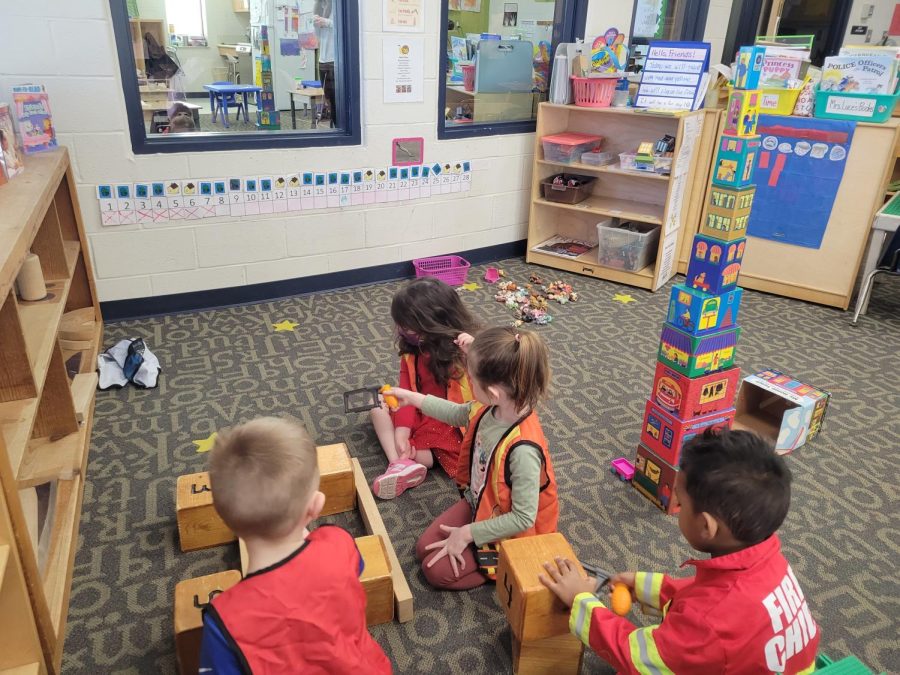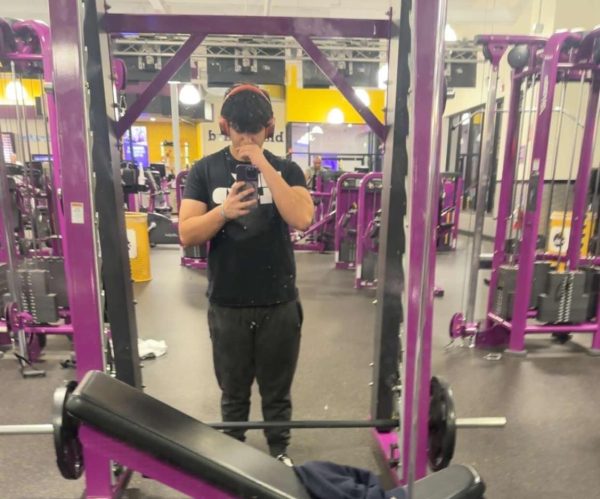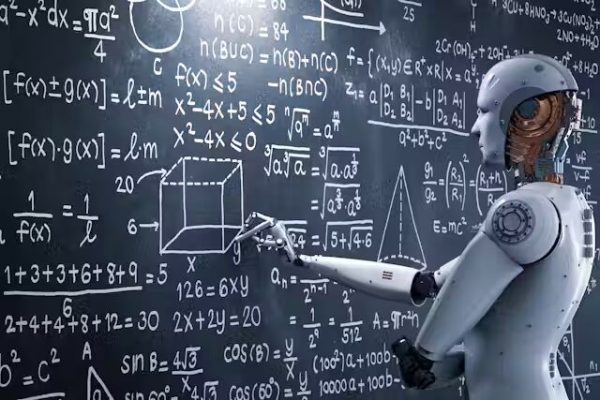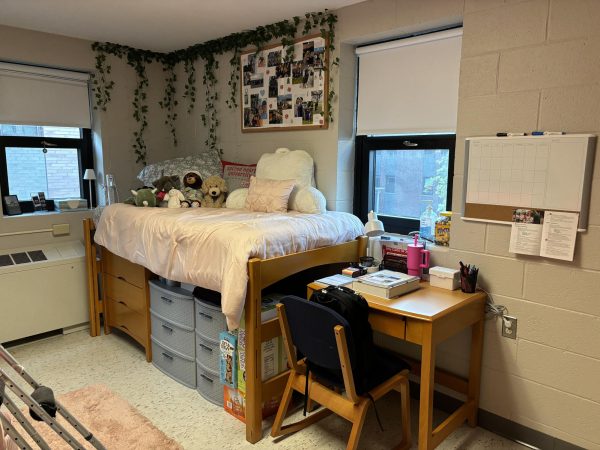Foran Child Learning Center Highlights the Importance of Play
The Importance of Play: Children engaging in play-based learning, March, 2022.
Foran High School has a very successful child learning program that has allowed high school students to observe a real pre-school learning environment since 1991. This program encourages children ages three and four to engage in what is called a play-based learning environment. It exposes children to a new environment that is different from what they’re used to and is intended to broaden their minds to explore new ideas and reach for more distant horizons.
Foran recently took part in a preschool showcase in Milford where students in Pangu’s class set up promotional materials for the May 21 event at Milford Public Library. The showcase was a preschool fair for all of Milford and offered parents and others a chance to see all the available opportunities for their children and pick the school that is perfect for them.
The Child Development Center is currently enrolling students ages three and four. The program is for MPS staff and Milford residents that are looking for a preschool to send their kids. The program starts at 7a.m. During Covid they closed at 3:30, but now the hours are extended until 4. The added 30 minutes can make the program more appealing to a parent’s work schedule.
The program enrolls up to 10 children for the school year. Plude says, “Their curriculum is right in line with other pre-k , daycares and other child learning centers. Both the teachers and the director are quite knowledgeable regarding early childhood education and are empathetic educators themselves.”
Ms. Rachel Pangu, the director of the Child Learning Center says, “We are a play-based program, which essentially means that through play, children really focus on social and emotional learning, which prepares them for kindergarten.”
The children work on language and problem solving, mathematics, science and social studies, and this is all through play. Children have the ability to work on one task for as long as they want. This gives them independence and the opportunity to interact with other children so they can learn from each other as well as themselves. Ms. Emily Plude, professional artist and visual arts educator, has her son enrolled in the program. She says, “My son works on projects, listens to stories and participates in weekly activities based on a theme pertaining to [equal opportunity] guidelines and early childhood educational standards.”
A study from the Harvard Center on the Developing Child shows that, “…positive early experiences lead to longer life expectancy, better overall health, and improved ability to manage stress. Plus, long-term social emotional capabilities are more robust when children have a chance to learn through play; form deep relationships; and when their developing brains are given the chance to grow in a nurturing, language-rich, and relatively unhurried environment.”
The program highly encourages teachers to step back and let the children solve problems on their own. This allows a child to be independent and confident.
The students in Pangu’s human growth and development classes are learning about different types of development, guidance techniques, nutrition, and the effects of stress on children. The students (*have access to the learning center to support classroom instruction through observation, planning, and implementation of learning activities as well as practicing guidance techniques*) and deliver guidance in learning activities as well as guide are allowed to go into the learning center with their ideas and teach them to the kids. “A Preschool play-based learning environment teaches children how to be effective listeners, develop social skills, problem solve, self regulate, develop resilience and boost children’s literacy skills,” says Pangu.
One project that the child growth and development students work on involves identifying a high quality children’s book. They create Top 10 Characteristics of a Good Children’s Book. They use this guide to choose a developmentally appropriate children’s book and design a learning activity promoting specific types of development around their book. Then they go into the learning center to read and engage the children in the learning activity they designed.
The program starts at 7 a.m. and encourages children to play with new materials every day. One boy in the program started the year off playing with blocks, and as the year progressed he grew an interest in the train set. Through engaging in play-based learning techniques, children are able to independently discover their personal interests. The Child Learning Centers main goal is to help children grow their gross motor skills, social skills, recall and age appropriate literacy skills. The learning centers main goal is to help children prepare for kindergarten.
Your donation will support the student journalists of Foran High School. Your contribution will allow us to purchase equipment and cover our annual website hosting costs.







